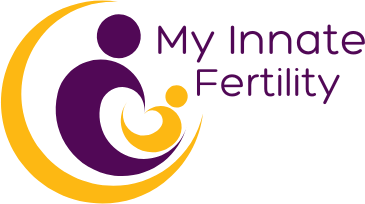The Impact of Sleep and Fertility: Creating Healthy Habits!
When we think about fertility, often the first things that come to mind are physical health, nutrition, and perhaps the timing of conception. However, one crucial aspect that frequently gets overlooked is the quality of our sleep. At My Innate Fertility, we believe in a holistic approach to health, recognizing that sleep is a cornerstone of well-being, significantly impacting fertility. Let’s dive into how sleep affects fertility and outline some healthy habits to support your journey toward conception.

Understanding the Link Between Sleep and Fertility
Sleep is more than just a period of rest for the body and mind; it’s a complex process that affects various bodily functions, including reproductive health. Studies have shown that both too little and too much sleep can disrupt hormonal balance, affecting ovulation and reducing the chances of conception. Consistent, high-quality sleep helps regulate the hormones directly involved in the reproductive cycle, such as estrogen and progesterone, making it a key player in fertility.
The Role of Sleep in Hormonal Balance
Hormones are the body’s chemical messengers, and their balance is essential for optimal fertility. Sleep helps to regulate the release of these hormones, including cortisol, the stress hormone, and melatonin, which not only aids in sleep but also protects eggs from oxidative stress. Disruptions in sleep patterns can lead to imbalances in these hormones, potentially affecting ovulation and the menstrual cycle.

Developing a Sleep-Friendly Lifestyle
Creating a sleep-friendly lifestyle involves more than just setting a bedtime. It includes establishing a routine that signals to your body it’s time to wind down. This can involve reducing exposure to blue light from screens an hour before bed, engaging in relaxing activities such as reading or taking a warm bath, and ensuring your sleeping environment is cool, dark, and quiet. Also, consider integrating mindfulness or relaxation techniques to manage stress, as high-stress levels can further disrupt sleep and, by extension, fertility.
The Importance of Sleep Consistency
Consistency is key when it comes to sleep. Going to bed and waking up at the same time every day, even on weekends, helps regulate your body’s internal clock or circadian rhythm. This regularity can improve sleep quality and duration, which in turn can positively impact fertility. Disrupted sleep patterns, often seen in shift workers or with jet lag, have been associated with menstrual irregularity and fertility issues.
Nutrition and Sleep: A Two-Way Street
Nutrition and sleep influence each other in many ways. Certain nutrients can enhance sleep quality, while a good night’s sleep can lead to better food choices the next day. Foods rich in magnesium, calcium, and omega-3 fatty acids, such as leafy greens, almonds, and fatty fish, can promote better sleep. On the flip side, consuming high amounts of sugar and caffeine, especially later in the day, can interfere with falling asleep and staying asleep.

The Power of Sleep in Enhancing Fertility
The impact of sleep on fertility is profound and multifaceted, touching on hormonal balance, stress reduction, and overall health. A study cited by the National Sleep Foundation highlights the significance of sleep, particularly its role in hormonal regulation and how it can affect a woman’s menstrual cycle and fertility. Adopting healthy sleep habits can be a powerful step in nurturing fertility and supporting the journey toward conception.
Incorporating these habits into your daily routine may not only enhance your fertility but also improve your overall quality of life. Remember, it’s about creating a balanced, healthy lifestyle supporting your physical and mental well-being. At Knapp Chiropractic, we’re committed to guiding you through this journey, offering holistic health solutions that cater to your unique needs as you work toward starting or growing your family. Contact us to talk more about how we can help with your fertility journey.

